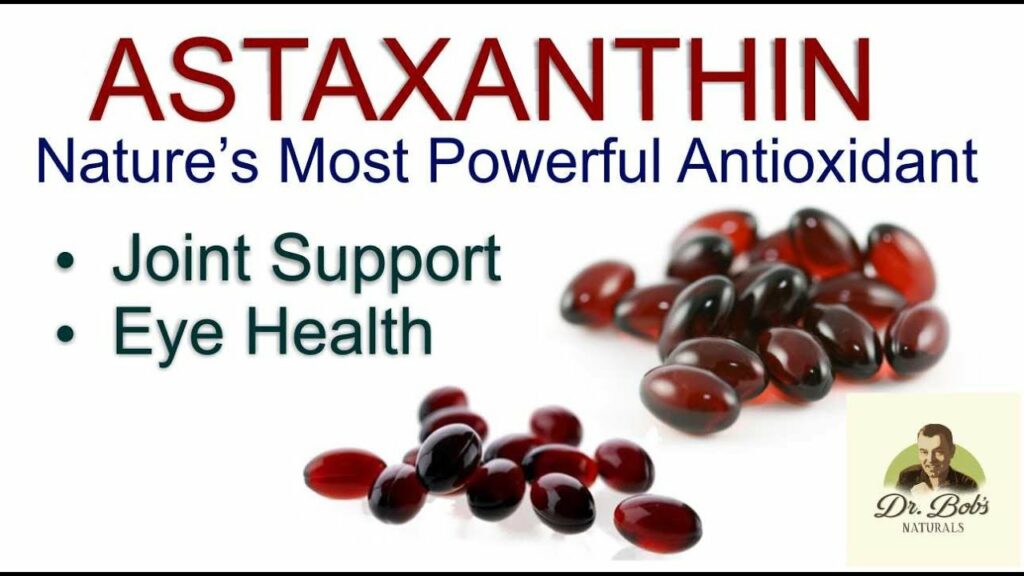Astaxanthin, a naturally occurring carotenoid pigment, is renowned for its powerful antioxidant properties and is responsible for the vibrant red-pink color found in marine organisms like salmon, trout, krill, shrimp, and microalgae. In recent years, astaxanthin has gained significant attention in the health and wellness sphere, particularly in supplement form, due to its myriad of health benefits. This comprehensive guide delves into the benefits of astaxanthin supplements, exploring how this potent antioxidant can contribute to your overall well-being.
Antioxidant Power and Free Radical Scavenging
Astaxanthin stands out in the carotenoid family for its exceptional antioxidant activity. It is believed to be many times more powerful than other antioxidants, such as beta-carotene, lutein, and vitamin C. The primary benefit of astaxanthin’s potent antioxidant property is its ability to neutralize free radicals without becoming a pro-oxidant itself, which can occur with some other antioxidants at high concentrations. This makes astaxanthin supplements an excellent choice for combating oxidative stress, which is a contributing factor to the aging process and many chronic diseases.
Support for Skin Health
One of the most sought-after benefits of astaxanthin supplements is their support for skin health. Astaxanthin can help reduce signs of aging by protecting the skin from the harmful effects of ultraviolet (UV) radiation and exposure to the sun. It does this by quenching singlet oxygen and scavenging free radicals, thereby reducing oxidative damage to skin cells. Regular intake of astaxanthin supplements can lead to improvements in skin elasticity, moisture levels, smoothness, and a reduction in the appearance of fine lines and wrinkles. Furthermore, its anti-inflammatory properties can help reduce redness, inflammation, and mitigate the effects of skin conditions such as acne and eczema.
Eye Health
Astaxanthin’s benefits extend to eye health, where its antioxidant properties play a crucial role in protecting the eyes from oxidative stress and inflammation. It has the unique ability to cross the blood-retinal barrier, delivering potent antioxidant protection directly to the eyes. This can help reduce the risk of age-related macular degeneration, cataracts, and other visual impairments. Additionally, astaxanthin has been shown to improve visual acuity, reduce eye strain and fatigue, especially relevant in today’s digital age where screen time is high.
Improved Athletic Performance and Recovery
Astaxanthin supplements have become popular among athletes and fitness enthusiasts for their potential to improve athletic performance and recovery. The antioxidant properties of astaxanthin can help reduce muscle damage and inflammation caused by exercise, leading to faster recovery times. Furthermore, astaxanthin may improve endurance and reduce muscle fatigue by enhancing mitochondrial function, which plays a vital role in energy production. This can lead to improved strength, stamina, and overall athletic performance.
Cardiovascular Health
The cardiovascular benefits of astaxanthin are attributed to its antioxidant and anti-inflammatory effects. By inhibiting oxidative stress and inflammation in the cardiovascular system, astaxanthin can help reduce the risk of arteriosclerosis (hardening of the arteries), which is a significant risk factor for heart disease. Additionally, it may improve lipid profiles by reducing triglyceride levels and increasing HDL cholesterol (the “good” cholesterol), further contributing to heart health. Astaxanthin also supports healthy blood flow and reduces blood pressure, making it a valuable supplement for maintaining cardiovascular health.
Joint and Musculoskeletal Health
Astaxanthin’s anti-inflammatory properties make it a beneficial supplement for those suffering from joint pain and conditions such as rheumatoid arthritis and carpal tunnel syndrome. By reducing inflammation, astaxanthin can help alleviate pain and improve mobility in affected joints. It may also contribute to the health of the musculoskeletal system by protecting against oxidative damage, potentially reducing the risk of osteoporosis and other degenerative bone conditions.
Immune System Support
Astaxanthin has been shown to enhance the immune response by stimulating the production of antibodies and increasing the number of immune cells. Its antioxidant and anti-inflammatory properties can help protect immune cells from oxidative damage, enabling them to function more effectively. This makes astaxanthin supplements a valuable addition to any regimen aimed at bolstering immune health.
Neuroprotective Effects
Emerging research suggests that astaxanthin may have neuroprotective effects, offering potential benefits for brain health. Its ability to cross the blood-brain barrier allows it to protect brain cells from oxidative stress and inflammation, which are contributing factors to neurodegenerative diseases such as Alzheimer’s and Parkinson’s disease. Astaxanthin may also improve cognitive function, memory, and mood, although more research is needed in this area.
Considerations and Dosage
Astaxanthin is considered safe for most people when taken as a supplement, with few reported side effects. However, as with any supplement, it’s essential to choose high-quality products from reputable manufacturers. The recommended dosage of astaxanthin varies depending on the condition being targeted, but it typically ranges from 4 to 12 mg per day. Consulting with a healthcare provider before starting any new supplement regimen is advisable, especially for those with existing health conditions or those taking other medications.
Conclusion
Astaxanthin supplements offer a broad spectrum of health benefits, thanks to their potent antioxidant and anti-inflammatory properties. From protecting the skin from UV damage and improving eye health to supporting cardiovascular health and enhancing athletic performance, astaxanthin is a versatile supplement that can contribute to overall well-being. While more research is needed to fully understand all its potential benefits and mechanisms of action, the current evidence suggests that astaxanthin is a valuable addition to a healthy lifestyle.
Is this conversation helpful so far?

